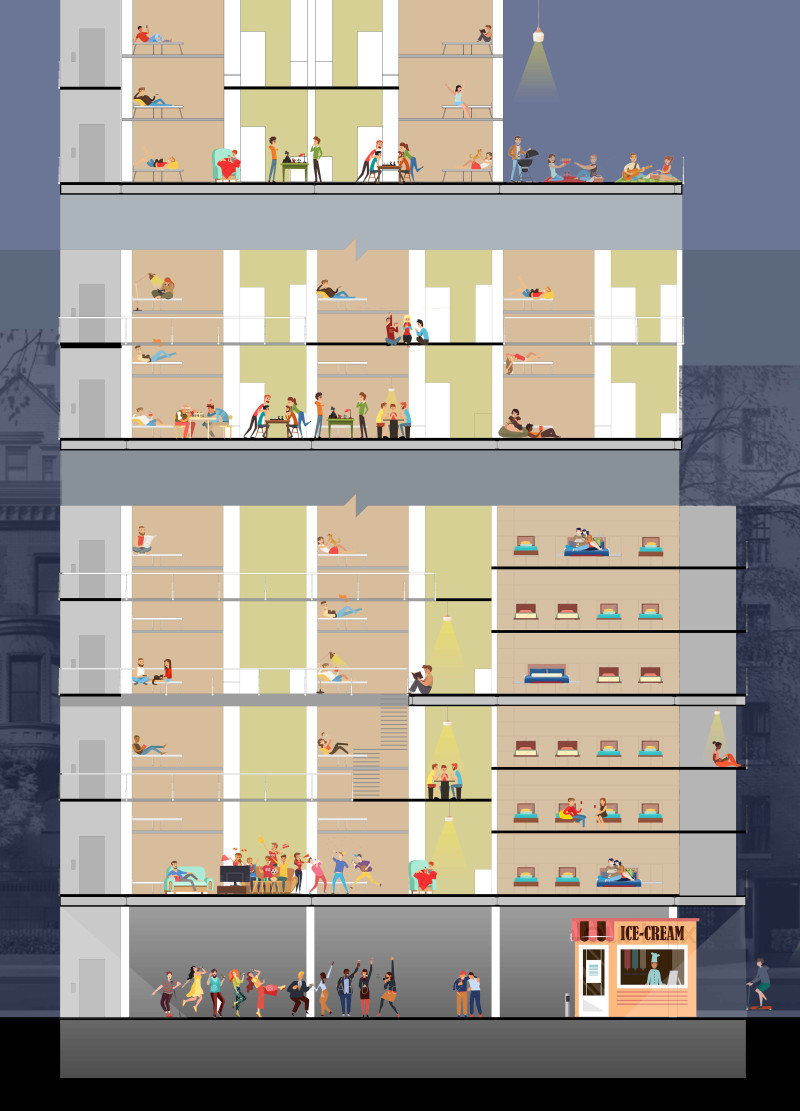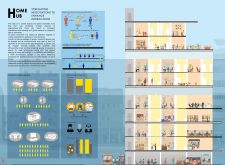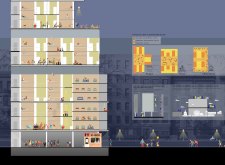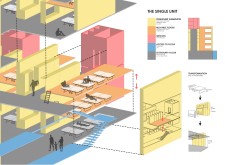5 key facts about this project
Home Hub reimagines urban living by creating a versatile and interactive environment that meets the needs of contemporary society. Located in a busy urban area, the design combines both residential and commercial functions, allowing residents to live and work in proximity. Central to the design is the idea of promoting social connections through shared spaces and communal amenities, fostering a sense of community among inhabitants.
Conceptual Framework
The project is based on the principle of stimulating interactions through carefully designed spaces. Shared amenities play a crucial role, offering opportunities for residents to engage with one another and build relationships. This focus on collaboration highlights the importance of community in today’s urban architecture.
Multifunctional Spaces
A key aspect of Home Hub is its multifunctional spaces. Rooms are designed to serve different purposes throughout the day, maximizing their usefulness and reducing wasted space. For example, sleeping areas can quickly turn into workspaces, addressing the needs of those who require flexibility in their living arrangements. This focus on adaptability reflects changing urban lifestyles.
Transformable Architecture
Home Hub also exemplifies the idea of transformable architecture. Residential units can be reconfigured to serve commercial purposes, allowing the building to respond to varying demands over time. This flexibility is important for making the most of limited urban space, enabling the design to evolve based on the needs of its users and surroundings.
Community Integration
The design incorporates elements that encourage both interaction and connectivity. Public facilities, like cafes and recreational areas, are integrated to promote engagement not only among residents but also with the larger community. Features such as balconies and viewing decks invite residents to take part in urban life, enriching the overall experience of living there.
At the top of the structure, the viewing decks provide wide-ranging views of the city. This design detail not only enhances the living experience but also serves to connect residents visually to the vibrant urban environment below.






















































